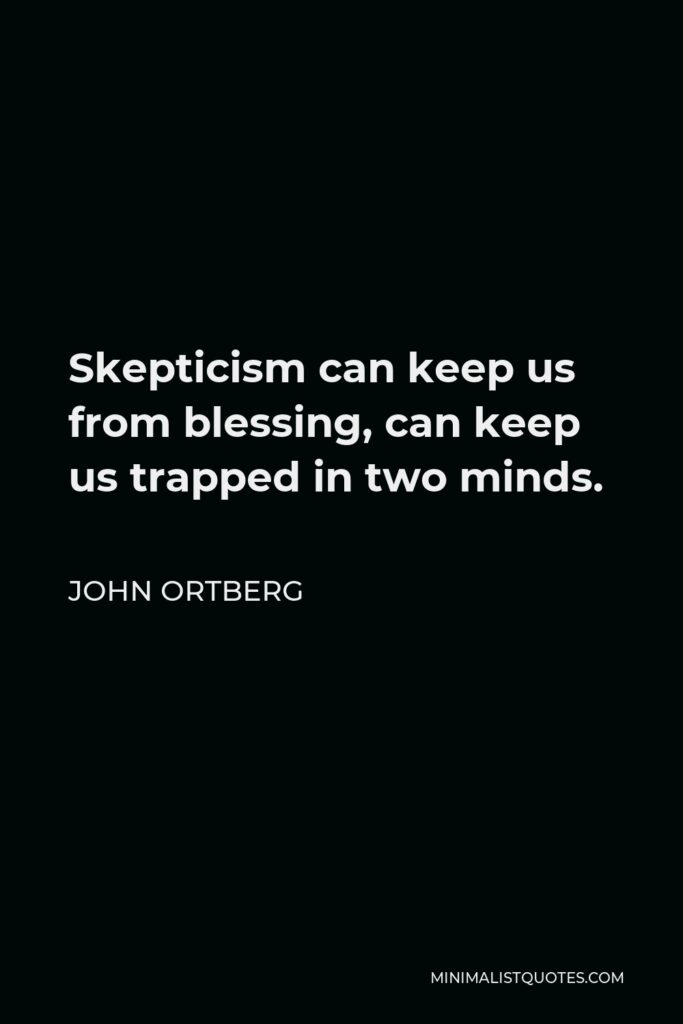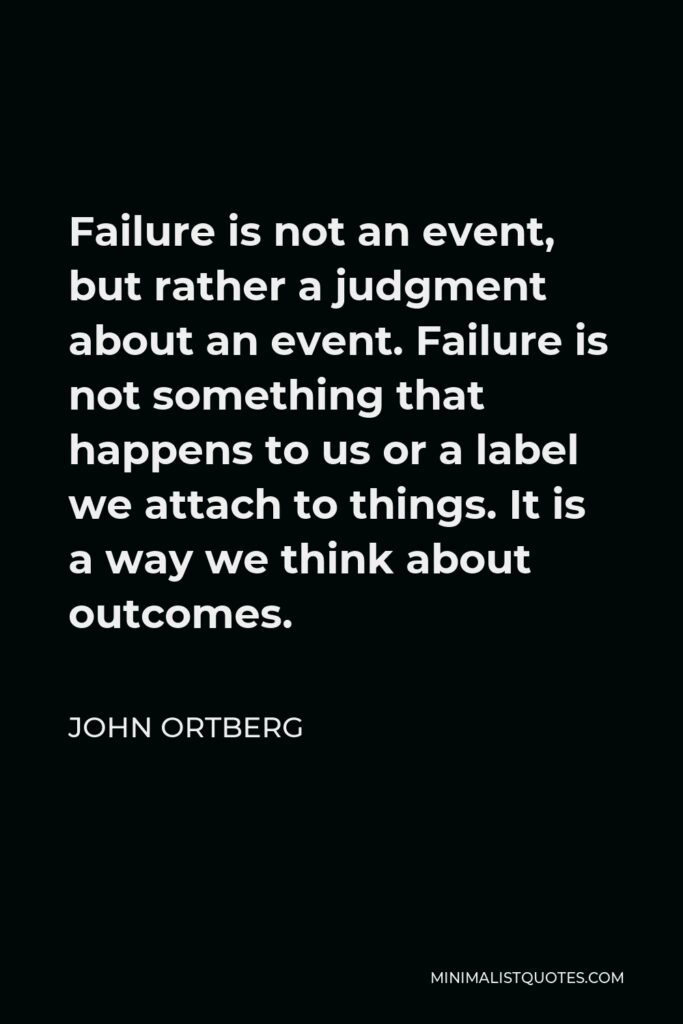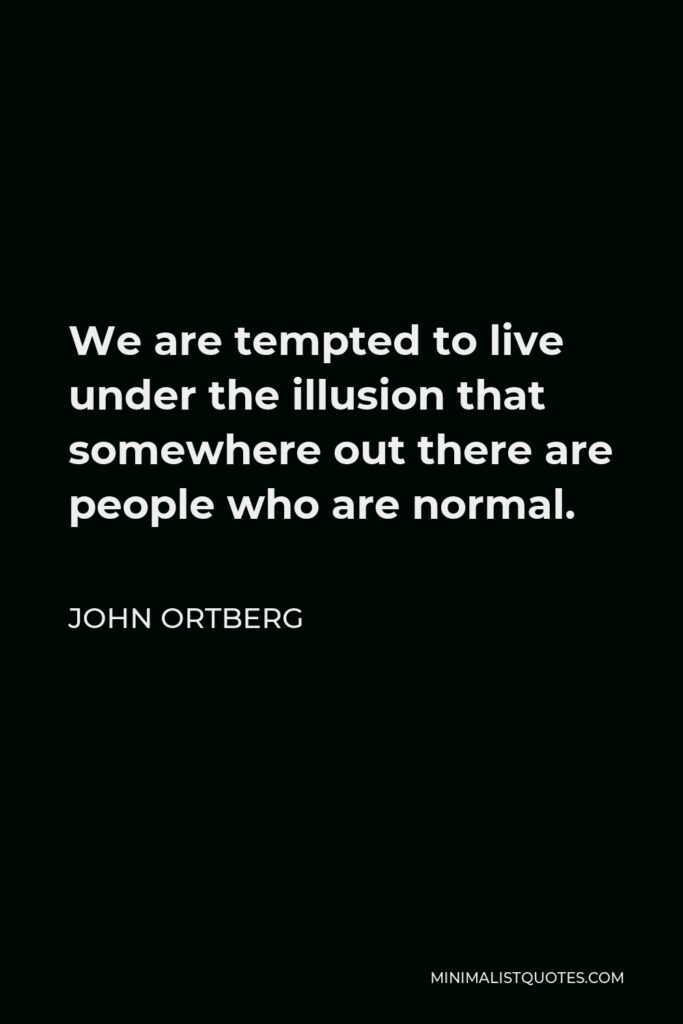At the heart of Christian faith is the story of Jesus death and resurrection.
JOHN ORTBERGRelated Topics
Anand Thakur



At the heart of Christian faith is the story of Jesus death and resurrection.
JOHN ORTBERG

A bad sermon is like a car wreck – everyone slows down to see what happened.
JOHN ORTBERG

Joylessness may be the sin most readily tolerated by the church.
JOHN ORTBERG

The harder you strike it, the deeper it goes.
JOHN ORTBERG

The test of love is that it gives even when there is no expectation of a return.
JOHN ORTBERG

Skepticism can keep us from blessing, can keep us trapped in two minds.
JOHN ORTBERG

Willpower is trying very hard not to do something you want to do very much.
JOHN ORTBERG

God is a God of endless opportunities to do good; the God of the open door.
JOHN ORTBERG

One of the most painful aspects of suffering is the loneliness of it. Others may offer support or empathy, but no one can walk the road to Moriah in our place.
JOHN ORTBERG

The problem with spending your life climbing up the ladder is that you will go right past Jesus, for he’s coming down.
JOHN ORTBERG

The greatest bloodbaths in the history of the human race were recorded in the twentieth century in countries that sought to eliminate God, worship, and faith.
JOHN ORTBERG

Failure is not an event, but rather a judgment about an event. Failure is not something that happens to us or a label we attach to things. It is a way we think about outcomes.
JOHN ORTBERG

If we are serious about loving God, we must begin with people, all people. And especially we must learn to love those that the world generally discards.
JOHN ORTBERG

The greatest moment of your life is now. This moment is God’s irreplaceable gift to you.
JOHN ORTBERG

Prayer allows us to wait without worry.
JOHN ORTBERG

We are tempted to live under the illusion that somewhere out there are people who are normal.
JOHN ORTBERG